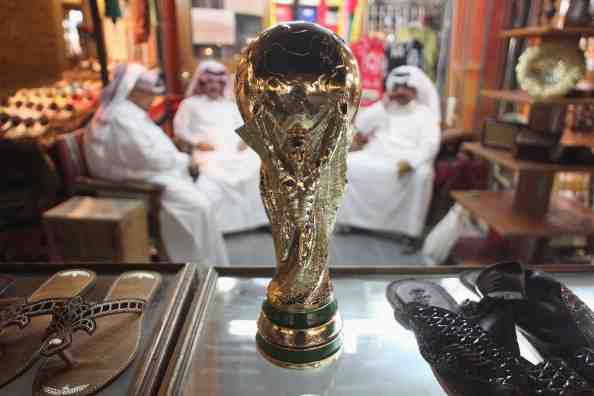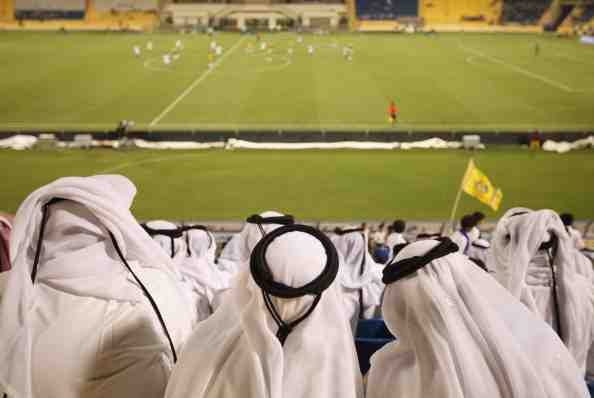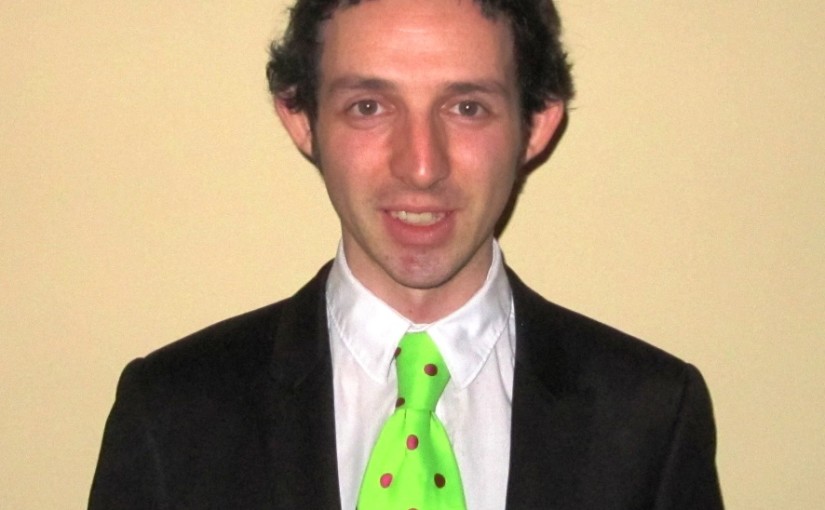Rarely has a classroom full of 14-year-olds been quite as stunned into silence by the announcement of the departure of their English teacher as mine was about 12 years ago now.
A quite brilliant teacher, poached from us in North London by Qatar, was leaving us. I left the classroom that day asking my friends: “Why Qatar? Who in their right mind would leave England to go to Qatar? Where even was Qatar? And, what do they want with our English teacher?”
That day I experienced, in my own small way, what most of the footballing world felt just under a year-and-a-half ago in Zurich, when the votes for who would host the 2018 and 2022 World Cups were cast.
When Qatar won the right to host the 2022 World Cup, everyone sat up and paid attention. And mostly it was with scorn – heaped on the country for allegedly buying their way to the hosting rights.
With sober reality now kicking in that Qatar really is hosting the competition in ten years’ time, it is time to reflect – whatever our reservations – on the fact that, despite the country having relatively little history on the pitch, the gulf state is an important player off it.
Nothing symbolises this more than Al-Jazeera’s growth and increased involvement in the pay-to-view- television market. Tuesday saw UEFA predictably allocate broadcast rights for this summer’s European Championships and the 2016 tournament in France in part to beIN Sports, Al Jazeera’s new sports channel in the country.
The name of the channel has already been trademarked worldwide, and its expansion seems only a matter of time, with plans to become a major player in the United States. Al-Jazeera is already making waves on that side of the Atlantic, acquiring television and internet rights to La Liga, Ligue 1 and Serie A. It was recently claimed that the Qatari broadcaster will launch a new beIN Sports channel in the States to further increase their presence there. And then there is the prospect of a bid, which has been touted, for Premier League rights.
Whatever the outcome of these various ventures, they show Qatar and Al Jazeera’s increasing prominence in the world of sport. The strategy adopted by Qatar is undeniably clever in the corridors of power too. Back in 1998, Mohamed Bin Hammam, the now banned former President of the Asian Football Confederation (AFC), supported Sepp Blatter’s bid to succeed João Havelange and subsequently became a key ally of the Swiss.

Now Bin Hammam’s failed Presidency bid last year and the new found links with France show a canny pragmatism. If you are going to invest heavily in any country, make it the one which the UEFA President, and many believe next FIFA President, hails from. Particularly given Michel Platini’s admission that he voted for Qatar’s 2022 World Cup bid, despite having campaigned vociferously since for the competition to be staged in winter. And the Frenchman is viewed as one football politician who is incorruptible – so this surely goes beyond money alone.
And then if you’re going to choose any team in France to plough millions of euros into, why not Paris St Germain (PSG), as Qatari Sports Investments (QSI) did last summer? It’s not as though President – for now – Sarkozy supports the Parisians or anything.
The investment in the Parisian giants has been good for the whole of France though, not just PSG. The country is one of the main football markets in the game, and teams across Ligue 1 have benefited from the influx of money at a time when French football needs it most, and when the value of its television rights package was at risk of going down. Teams like Lorient and St Etienne have been able to pick up princely sums for the likes of Kevin Gameiro and Blaise Matuidi from PSG. Lille may follow suit if the Parisians, as expected, come in search of their playmaker Eden Hazard, one of the most highly rated youngsters in Europe.

Yet the club’s performance on the field also gives clues as to some of the reasons for Qatar’s steps into the football world off it. In December, with PSG sitting top of the table for the first time in 15 years, they sacked club legend Antoine Kombouaré, a former defender who had been with the club when they won Ligue 1. In came Carlo Ancelotti, with David Beckham almost following too.
Since then, Ancelotti, though remaining unbeaten until relatively recently, has statistically reduced a Ligue 1 win percentage of 63 per cent under Kombouaré to closer to 50 per cent. He has tinkered with a winning system, altered the team’s formation and dropped Gameiro, who had been so lethal at the start of the season. They have lost their width as Ancelotti has mystifyingly dropped the skilful Brazilian winger Nene on occasion, and played with three defensive midfielders at times. Bringing Ancelotti in makes no “football” sense. Yet the owners brought in the Italian seemingly for one main reason – profile.
Qatar have viewed football as a way of exercising soft power in the world, not just in sporting circles, but politically too. Qataris are exempt from capital gains tax in France, and some of the country’s biggest companies are owned by Qatari wealth funds. The relationship between the two countries goes deeper than football. When the United Nations intervened in Libya last year, it was notable that France was the most prominent of the main western powers who had pushed for air strikes against Colonel Gadaffi, whilst Qatar was a key funder of the rebels in Libya and played a prominent role in their ultimate victory.
Earlier this year, Qatar also advocated the military solution to the current conflict in Syria. Of all the nations in the region, they are one of the Arab states with warmer ties with Israel. This is a country looking to become a regional power, but through diplomacy, rather than force. Sport is one of their ways of doing this, and they have been busy around the world increasing their profile.
The Qatar Foundation became the first ever paid sponsor to have their names on the shirts of European champions Barcelona last year, whilst La Liga side Malaga are also under the control of a member of the country’s royal family. Sports conferences such as the annual International Sports Security Conference have come to the country, as has the Al-Kass Cup, a new youth tournament for teams across the world.
Throw in Al-Jazeera’s growing influence on the world television sports market, and then consider the prospect of the 2020 Olympic and Paralympics coming to Doha. It is clear Qatar and Al-Jazeera mean business, and are not going away anytime soon.
David Gold is a reporter for insideworldfootball. You can follow him on twitter here.

